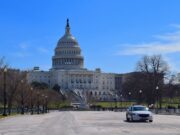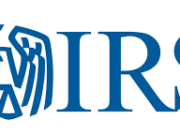Honorable John Koskinen, Commissioner
Tamera Ripperda, Director of Exempt Organizations
Internal Revenue Service
1111 Constitution Avenue, NW
Washington, D.C. 20224
Re: Application for section 501(c)(4) status by Crossroads GPS
Dear Commissioner Koskinen and Director Ripperda:
On May 6, Democracy 21 and the Campaign Legal Center (CLC) wrote you “to urge the Internal Revenue Service (IRS) to deny tax exempt status as a ‘social welfare’ organization to Crossroads GPS.” By the authors’ own accounting, this was the eleventh such letter submitted to the Service.
The Center for Competitive Politics (CCP) writes in response. CCP takes no position on the granting or denial of tax-exempt status to any particular organization, nor do we think it appropriate for us, or others, to do so here. Consequently, we have not written you to rebut any of the previous ten letters submitted by Democracy 21 and the Campaign Legal Center. But because the most recent of these letters misrepresents the significance of the Federal Election Commission’s First General Counsel Report in Matter Under Review (MUR) 6396, we write now.
The Center for Competitive Politics is a § 501(c)(3) organization dedicated to protecting the First Amendment political rights of speech, petition, and association. CCP was founded in 2005 by Bradley A. Smith, a former chairman of the Federal Election Commission (FEC). As part of its mission, CCP has often interacted with the FEC, both in litigation and in various administrative contexts.
The CLC-Democracy 21 letter argues that the General Counsel’s Report “confirms [the CLC-Democracy 21] position that Crossroads GPS is a political group, not a ‘social welfare’ organization.” But the Report does no such thing. It is merely a staff report that suggested there was reason to believe that Crossroads GPS may be inappropriately operating as political action committee (PAC). The Report certainly arrived at no legal conclusion that Crossroads GPS is a political committee—and under federal law, the Office of General Counsel (OGC) could not have done so in any event.[1]
The United States District Court for the District of Columbia has succinctly summarized the FEC’s enforcement process:
The FEC first reviews the complaint and any responses to it. Then, usually following a recommendation from the General Counsel of the FEC, the Commission votes whether there is ‘reason to believe’ that a violation of FECA has occurred If four of the six members of the Commission vote to find a ‘reason to believe,’ then the FEC will conduct an investigation. After the investigation is completed, the six members of the Commission again vote, but this time to determine whether there is ‘probable cause’ to believe a violation of FECA has occurred. Again, if at least four of the six members vote to find probable cause, the FEC will attempt to reach a conciliation agreement with the alleged violator. If no conciliation agreement can be reached, the six member Commission can vote to institute a de novo civil enforcement action.[2]
Furthermore, as the FEC itself has noted, “[a] ‘reason to believe’ finding is not a finding that the respondent violated the Act, but instead simply means that the Commission believes a violation may have occurred.”[3] A “reason to believe” finding, even if made, merely opens an investigation. Here, the Commission declined to find reason to believe that Crossroads GPS was violating the law, or even reason to believe an investigation was warranted.
The CLC-Democracy 21 letter correctly states that “[b]y a divided 3-3 vote on December 3, 2013, the Commission did not adopt the General Counsel’s recommendation to find reason to believe that Crossroads GPS had violated the law.” However, the letter goes on to note—without citation—that “[u]nder FEC precedents, a tie vote means that the FEC itself takes no formal position, one way or the other, on the report.” That statement is, at best, incomplete.
Under federal law, “[i]f, during any of the numerous votes by the six member Commission, less than four members vote affirmatively in favor of taking action upon the complaint, then the complaint is dismissed.”[4] Further, when a complaint is officially dismissed by a 3-3 vote, “the three Commissioners who voted to dismiss…constitute a controlling group for the purposes of the decision.”[5]
Given the unique nature of the FEC, this rule makes sense. “The Commission is…singular in its enforcement procedures, which reflect an amalgam of investigative, prosecutorial, and de facto adjudicative phases and functions.”[6] Its unusual structure and procedures reflect its duties as a regulator of campaign speech, an area where “the First Amendment has its fullest and most urgent application.”[7] Accordingly, the FEC’s enabling statute prohibits the Commission from ever having more than three commissioners from the same political party. The four vote rule prevents any one political party from manipulating the FEC to partisan ends.[8]
A Commission decision not to find reason to believe on a 3-3 vote is a final order subject to judicial review, although “a reviewing court should accord deference to the Commission’s rationale.”[9] And, as a matter of law, “to make judicial review a meaningful exercise, the three Commissioners who voted to dismiss must provide a statement of their reasons for so voting.”[10] The three controlling commissioners did so in regard to MUR 6396.[11]
Furthermore, the commissioners’ statement of reasons notes that OGC’s rationale for suggesting reason to believe was a departure from FEC precedent. “[I]n order to reach the conclusion that Crossroads GPS’s major purpose was the nomination or election of a federal candidate, OGC had to expand the universe of communications that could be considered, while simultaneously contracting the time period for evaluating Crossroads GPS’s spending.” Id.
The report attached by CLC and Democracy 21 “recommended an entirely new rule for determining political committee status” that the FEC had never applied—and, indeed, was not in an earlier First General Counsel’s Report prepared on MUR 6396 in 2011.[12] The controlling commissioners sought to attach the initial (and presumably less novel) First General Counsel’s Report to their statement of reasons, but were unable to obtain four votes to release the document—hence the nearly 70 redacted pages attached to the controlling commissioners’ statement.[13] CCP is presently engaged in an effort to obtain the contents of the original First General Counsel’s Report via the FOIA process.[14]
To be blunt, the First General Counsel’s Report carries no legal authority. It is a staff document whose conclusions were, as a formal matter, rejected by the FEC. The controlling view of the Commission specifically disclaimed the legal theory upon which Democracy 21 and CLC rely in their May 6 letter.
To the extent that the IRS were to rely upon the Report to determine that Crossroads GPS does not qualify as a social welfare organization, the Service would be disregarding the FEC’s decision that there is no reason to believe Crossroads is a PAC.[15] An FEC decision not to open an investigation is, in and of itself, a rather good indication that a group’s major purpose is not political intervention, at least as defined by our federal election laws. In such cases, the IRS should proceed with caution before determining that the same organization is a Section 527 entity.
In a recent report, the Taxpayer Advocate noted that the IRS “as a tax agency, is assigned to make an inherently controversial determination about political activity that another agency may be more qualified to make.”[16] She recommended that it might be “advisable to separate political determinations from the function of revenue collection” by seeking Congressional legislation mandating that the IRS look to FEC determinations on political status as a proxy for determining a group’s tax-exempt status.[17] Rejecting the FEC’s determination of PAC status would also be a rejection of this counsel.
Once again, we do not write to suggest the IRS take any specific action in regard to Crossroads GPS’s application.[18] But it is important to remember that Congress created the Internal Revenue Service to oversee the neutral, nonpartisan collection of revenue, and created the Federal Election Commission to oversee the bipartisan regulation of political speech and association. That line should not be blurred.
The IRS should decline to entertain CLC and Democracy 21’s invitation to become a regulator of last resort when the FEC chooses not to regulate speech and association in the manner some would prefer. And the Service certainly should not rely upon the rhetoric-laden legal argument advanced in the CLC-Democracy 21 letter, an argument that improperly treats rejected staff analysis as authoritative guidance.
I am happy to discuss these issues with you or members of your staffs. I may be reached at (703) 894-6800 or by electronic mail at adickerson@campaignfreedom.org.
Very truly yours,
Allen Dickerson
Legal Director
https://www.ifs.org/wp-content/uploads/2014/05/IRS-Letter-May-21st.pdf
[1] See 2 U.S.C. § 437(g) (2014).
[2] Kean for Congress Comm. v. FEC, 398 F. Supp. 2d 26, 29 (D.D.C. 2005) (internal citations omitted).
[3] Federal Election Commission, Guidebook for Complainants and Respondents on the FEC Enforcement Process at 12 (May 2012), available at: http://www.fec.gov/em/respondent_guide.pdf. Indeed, the FEC itself asked Congress to amend federal election statutes to replace the phrase “reason to believe” with the term “reason to open an investigation.” FEC Annual Report 2003 at 42-43, available at: http://www.fec.gov/pdf/ar03.pdf.
[4] Kean, 398 F. Supp. 2d at 29.
[5] FEC v. Nat’l Republican Senatorial Comm., 966 F.2d 1471, 1476 (D.C. Cir. 1992). To avoid confusion, CCP has suggested that the FEC avoid using the phrase “deadlock” to describe 3-3 dismissals. Allen Dickerson and Zac Morgan, CCP Comments in Response to FEC Notice 2013-01, Center for Competitive Politics at 12 (April 19, 2013), available at: https://www.ifs.org/wp-content/uploads/2013/04/CCP-Enforcement-Comments-041913.pdf.
[6] Committee on Election Law, Section of Administrative Law, “Report on Reform of the FEC’s Enforcement Procedures,” American Bar Ass’n at 2 (1982).
[7] Eu v. San Francisco County Democratic Central Comm., 489 U.S. 214, 233 (1989).
[8] Given the FEC was created in response to the revelations of extraordinary corruption and political retribution of the Nixon administration, this precaution was certainly justified.
[9] Nat’l Republican Senatorial Comm., 966 F.2d at 1476. And, as the CLC-Democracy 21 letter notes, such a case has been filed. Public Citizen, et al. v. FEC, No. 1:14-cv-00148 (D.D.C. 2014). Of course, the mere filing of such a case does not mean that Crossroads GPS is guilty of any violation, especially as the district court is required to afford Chevron deference to the Commission’s decision to dismiss that complaint.
[10] Id.
[11] Statement of Reasons of Chairman Lee E. Goodman and Commissioners Caroline C. Hunter and Matthew S. Petersen, In the Matter of Crossroads Grassroots Policy Strategies, Federal Election Commission (Jan. 8, 2014), available at: http://eqs.fec.gov/eqsdocsMUR/14044350970.pdf.
[12] Statement of Reasons at 26.
[13] CCP notes that the result of that 3-3 vote was not that the Commission took no position on the release of the report. Rather, the 3-3 vote represented the Commission’s decision not to release the report.
[14] CCP’s original FOIA request is available here: https://www.ifs.org/wp-content/uploads/2014/04/CCP-FOIA.pdf. CCP’s letter of appeal is available here: https://www.ifs.org/wp-content/uploads/2014/04/CCP-FOIA-Appeal.pdf.
[15] See 2 U.S.C. § 438(f) (“[T]he [Federal Election] Commission and the Internal Revenue Service shall consult and work together to promulgate rules, regulations, and forms which are mutually consistent.”).
[16] Nina Olson, Special Report to Congress: Political Activity and the Rights of Applicants for Tax-Exempt Status, National Taxpayer Advocate at 16 (2013), available at: http://www.taxpayeradvocate.irs.gov/userfiles/file/FullReport/Special-Report.pdf.
[17] Id.
[18] CCP’s proposed rule for clarifying the scope and application of 26 U.S.C. § 501(c)(4) is a matter of public record, and is presently before the Service. It is available online at: https://www.ifs.org/wp-content/uploads/2013/12/IRS-Comments-and-Draft-Rule.pdf.














